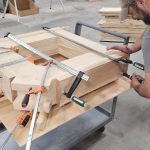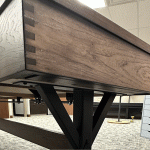
Shuffling the Deck: How Tariffs Impact Made-In-USA Shuffleboard Tables
Shuffleboard tables have long been a staple of American craftsmanship, blending precision engineering with timeless design. McClure Tables shuffleboard table manufacturer committed to producing these tables entirely in the USA; the “Made in America” label is a badge of pride–a promise of quality, durability, and local economic support. But in today’s global economy, even the most patriotic shuffleboard maker isn’t immune to the ripple effects of tariffs. So, how exactly do tariffs shuffle the deck for these iconic American-made games? Let’s break it down.
What Are Tariffs, Anyway?
Tariffs are taxes imposed by governments on imported goods. They’re designed to protect domestic industries, raise government revenue, or sometimes flex a little geopolitical muscle. For American shuffleboard manufacturers, tariffs might sound like a win—after all, they could make imported tables more expensive, giving homegrown products a competitive edge. But the reality is more complicated than a perfectly executed shuffleboard shot. One important distinction that often gets glossed over with the “Made in the USA” label is that many Shuffleboard companies who claim they are made in the USA source some components, like cabinets, from overseas, including China, and then perform final assembly in the USA. This practice aligns with how many products leverage the “Made in USA” claim under U.S. Federal Trade Commission (FTC) guidelines, which allow the label if the product undergoes its “last substantial transformation” in the States, even if parts are imported.
Even if a shuffleboard table is assembled in the USA, many components—like wood, finishes, or metal hardware—may come from overseas. Tariffs on these imported materials can drive up costs for manufacturers. For example, hardwood like maple or oak, often used for premium shuffleboard playing surfaces, might be sourced from Canada or elsewhere. If tariffs hike the price of that wood, the cost of building a table climbs, too. Suddenly, that “affordable luxury” shuffleboard table isn’t so affordable anymore. At McClure Tables, none of this affects our shuffleboard table cost because we are one of the only manufacturers building everything from scratch in Michigan. We know of only one other Shuffleboard Company Championship in Texas that makes their playboards. They do, however, last we knew, import the soft maple they use for the playboards from Canada, which may affect their cost. Even if they used Michigan Hard Maple as McClure Tables does, they would have substantially higher costs from transportation costs. We are proud to use locally harvested hardwood for our playboards and cabinets, with all major components. Over 95% of the production is done in the USA and handcrafted in Michigan.
The Supply Chain Shuffle
Tariffs can disrupt the entire supply chain and not just hit raw materials. Let’s say a U.S. manufacturer relies on imported steel for the table’s frame or screws. A tariff on steel imports (like the ones we’ve seen in recent years) could force suppliers to raise prices or scramble for domestic alternatives. Domestic options might be pricier or harder to come by, adding delays and costs. These disruptions can mean longer lead times or slimmer profit margins for small businesses crafting shuffleboard tables, especially those importing most components. With the advances in AI, go to something like Grock and ask them who makes the best shuffleboard tables made 100% in the USA with no imported components and see what results you get. You might be surprised that the answers don’t reflect the marketing claims made by some prominent Shuffleboard brands. If you ask who makes the best shuffleboard tables, 2 out of the three answers will come back with companies that import components and do final assembly in the USA.
Competing with Imports
Conversely, tariffs on fully assembled shuffleboard tables from abroad can level the playing field. Cheap, mass-produced tables from countries with lower labor costs might face a tariff penalty, making them less attractive to buyers. This could nudge consumers toward American-made options, boosting demand for USA-crafted shuffleboards. But here’s the catch: if domestic production costs rise due to material tariffs, that advantage might shrink faster than a poorly waxed playing surface. It may be convenient to go to Amazon or Google and search shuffleboard tables when you see a large selection with over half of these imported tables and 35-40% of the rest of the manufacturers skirting the FTC guidelines on what is considered made in the USA.
The Price Tag Dilemma
So, what does this mean for the buyer? Manufacturers’ higher costs often translate to higher retail prices. A handcrafted, Made-in-USA shuffleboard table might go from a justifiable splurge to a budget-busting luxury. Manufacturers face a tough choice: absorb the extra costs, take a hit to their bottom line, or pass them on to customers and risk losing sales. Either way, the tariff game changes how these businesses play. However, at McClure Tables, with our direct-to-consumer business model, our tables are the same price as factory-produced tables, and even most imported tables are in the middle to high price range. The difference is that you get a shuffleboard table that is 100% handcrafted in Michigan by a small team of craftsmen.
Quality vs. Cost: The American Edge
Despite the challenges, tariffs can highlight the value of American-made shuffleboard tables. Consumers prioritizing quality, sustainability, and supporting local jobs might consider the slightly higher price worthwhile. A USA-made table often means better materials, meticulous craftsmanship, and a story behind every puck slide—something imported alternatives can’t always match. Tariffs might encourage manufacturers to double down on domestic sourcing, strengthening the “Made in America” ethos. At McClure Tables, we work hard to bring as much in-house as possible. For example, we used to import our bent horse collars on a few models, but now we make them in the woodshop. See the pictures below of Dan gluing up and putting together a multiple horse collar used on models like our Prestige or Tournament II shuffleboard Table.
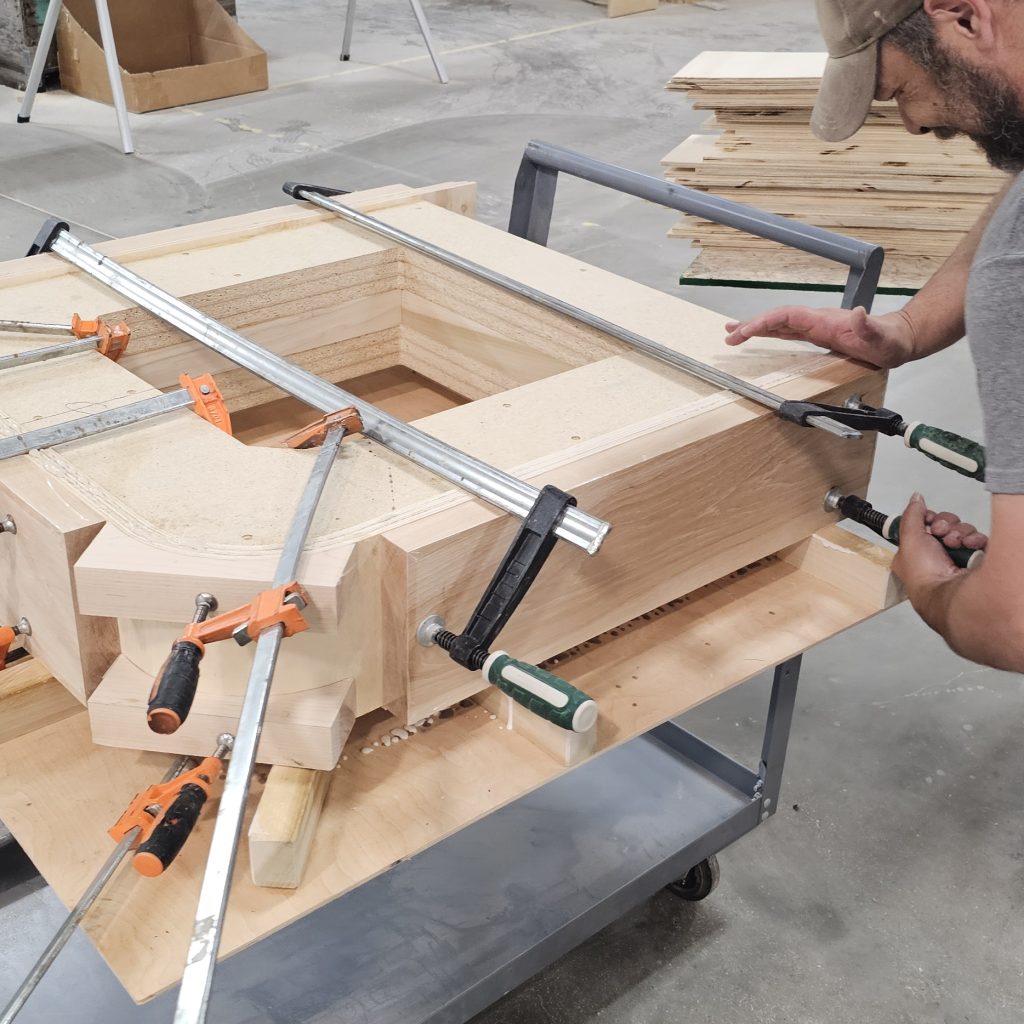

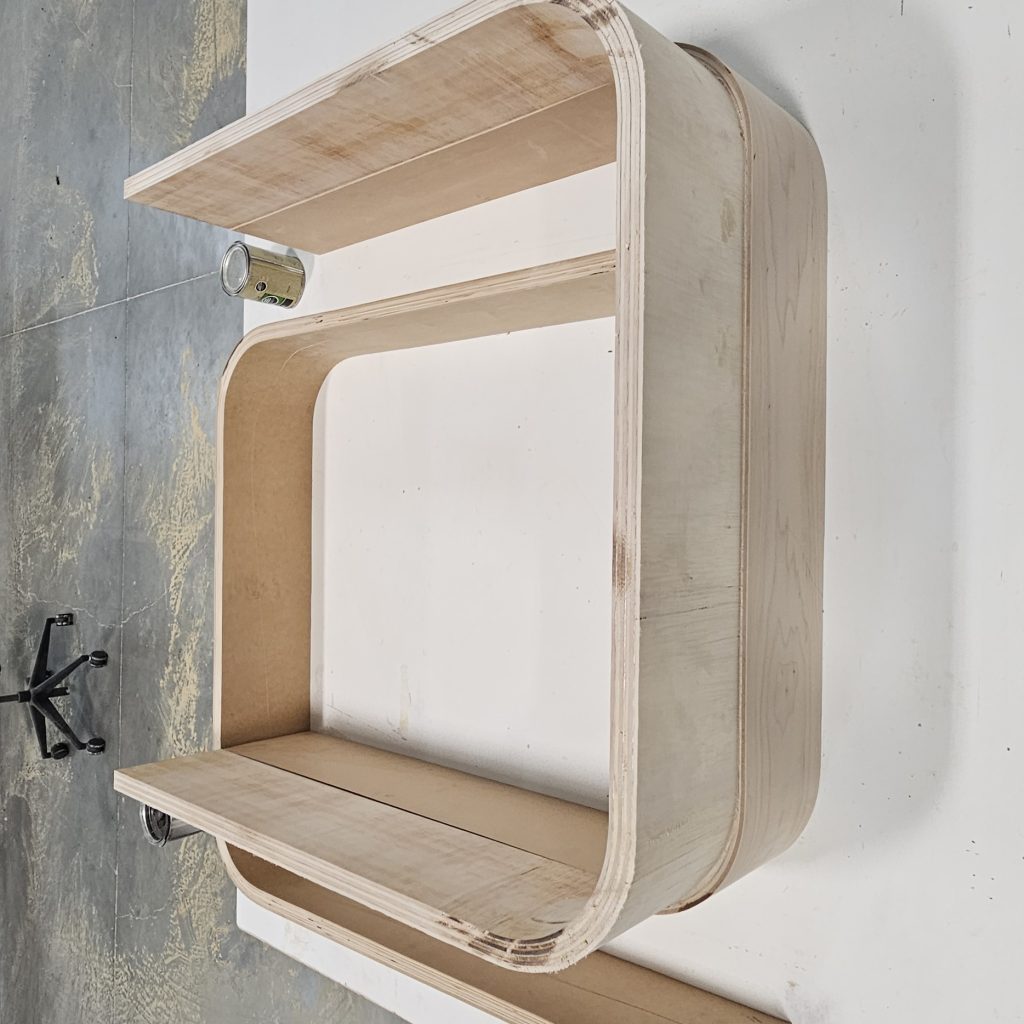
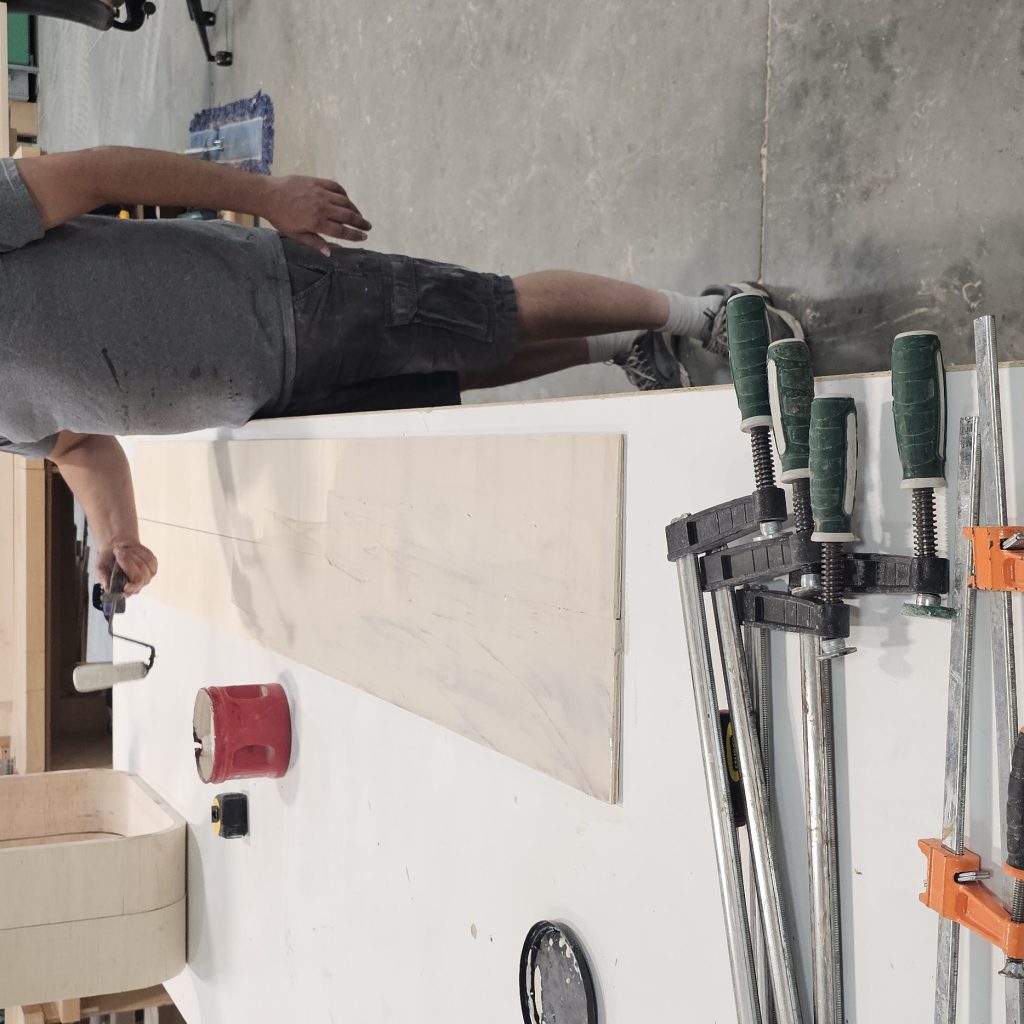
The Bottom Line
Tariffs are a double-edged sword for Made-in-USA shuffleboard tables. They can protect against cheap imports but also raise the stakes for manufacturers relying on global supply chains. For buyers, it’s a reminder that “American-made” comes with pride and a price—a price increasingly shaped by forces beyond the workshop.
Next time you’re eyeing a shuffleboard table for your game room, consider the journey. Tariffs might be the unseen player sliding the puck slightly farther than you expected.


